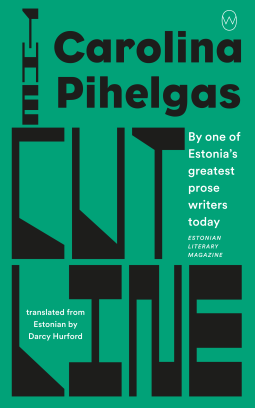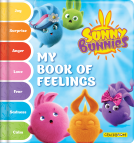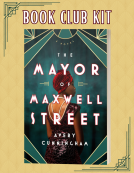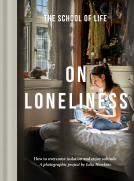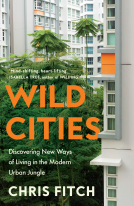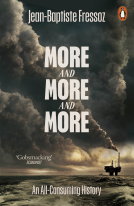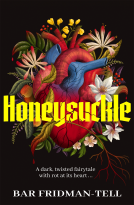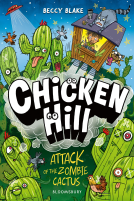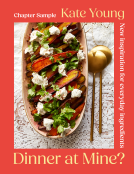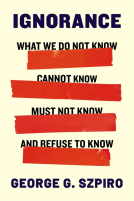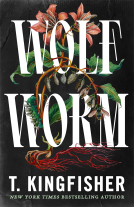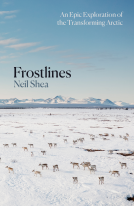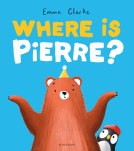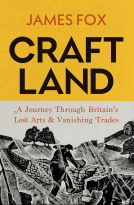The Cut Line
by Carolina Pihelgas
You must sign in to see if this title is available for request. Sign In or Register Now
Send NetGalley books directly to your Kindle or Kindle app
1
To read on a Kindle or Kindle app, please add kindle@netgalley.com as an approved email address to receive files in your Amazon account. Click here for step-by-step instructions.
2
Also find your Kindle email address within your Amazon account, and enter it here.
Pub Date 3 Feb 2026 | Archive Date 3 Feb 2026
Talking about this book? Use #TheCutLine #NetGalley. More hashtag tips!
Description
She undergoes every stage of separation in a lone farmstead amid forests. Physical labor and gardening help her withstand her ex-partner’s threats, the incredulity of friends and family, and her own anguish. Dread is pervasive in this novel. Set in the near future, it is filled with vivid depictions of the threat of climate change. All around Liine, nature is facing acute drought and heat. No less menacing is the presence of an expanding NATO base close to the cottage at the Russian border. The world’s largest military alliance is practicing for an attack. Explosions and shots ring in the distance while Liine tries to recover from fourteen years of violence. Yet she simply follows the rhythm of nature as summer unfolds. While her environment changes around her, Liine—always in the garden chopping wood, weeding, sowing—undergoes profound transformations, too. The Cut Line is a story of fear, self-blame, grief, numbness, and anger ultimately giving way to hope and healing, joy and lightness.
Advance Praise
Praise for The Cut Line
“Carolina Pihelgas’ second novel, The Cut Line, revolves around the inner life of a young woman who has recently ended an abusive, toxic relationship. The Cut Line is a book about boundaries—personal and natural, spatial and temporal. It is fascinating to see how these boundaries shift and merge.” —Estonian Literary Magazine
“Carolina Pihelgas delves deep, peers to the very bottom, is bold and confident, and never stops halfway.” —Piret Põldver, literary critic
“In less than one hundred pages, Carolina Pihelgas creates a depth that would perhaps not be possible without her poetic language, upon which she builds her rendering of the human soul. With this extraordinary little book, the poet undoubtedly reinforces her position as one of Estonia’s greatest prose writers today.” —Estonian Literary Magazine
Marketing Plan
- By one of Estonia’s greatest prose writers today
- Angry, edgy, fierce, from the first sentence on: “The knife’s long and blunt; it can’t cut.”
- 2020 Cultural Endowment of Estonia Poetry Award
- 2020 Tartu City Writer Laureate
- 2020 August Sang Poetry Translation Award
- Reading A Cut Line is nearly a physical experience as the protagonist works in the garden, reeling after the end of an abusive relationship
- Accessible, intense short chapters and clear structure of poetic fragments with many details, observations, and reflections.
- Focused on the protagonist’s inner turmoil after a breakup, with a permeating sense of dread caused by an expanding military base close by and dying nature around
- As her environment changes, Liine herself undergoes profound changes. Likewise, there is a shift from Liine’s sinister language at the beginning of the book to a clairvoyant, self-determined voice towards the end.
- Pihelgas’s wonderfully poetic and fragmented work traces the fates of a sensitive individual and the endangered community and primeval forest around her.
Available Editions
| EDITION | Other Format |
| ISBN | 9781642861617 |
| PRICE | $19.99 (USD) |
| PAGES | 142 |
Available on NetGalley
Average rating from 97 members
Featured Reviews
 Calzean J, Reviewer
Calzean J, Reviewer
The central character moves to an old, ramshackle cottage in the Estonian countryside after leaving a toxic relationship. The book is set in the near future and the countryside is struggling with drought and later with fierce storms as the impacts of climate change are felt. The countryside is not so peaceful as the cottage abuts a military training area.
The book is full of feelings as the young woman goes through the stages of grief with her ex and her complex relationship with her not so motherly-mother.
I'm not a woman and I have never experienced a toxic relationship. But I really felt the young woman's emotions, her strength and resolution to move forward.
Set in an eerily near future on the edge of a NATO base and a climate-cracked wilderness, the story follows Liine, a woman retreating to a solitary farmstead after fleeing a violent, 14-year relationship. What unfolds is a narrative of survival and a deeply physical, grounded reclamation of self in a world that seems to be unraveling in tandem with her.
The prose is stripped down yet profoundly sensory, full of the textures of labor: chopping wood, digging into dry soil, and bracing against distant military explosions that mirror her internal state. The dread that permeates the book is subtle but unrelenting, made all the more potent by the realism of its backdrop—scorched fields, vanishing water, and the ever-present hum of geopolitical threat.
The Cut Line was a short but impactful read. The author offers us a fascinating psychology study of a young woman trying to come to terms with her escape from a toxic relationship and find a way forward, rediscovering who she is and what she wants from life. Her personal development is mirrored in the run-down cottage she flees to, and as she fixes up parts of her temporary home, she also progresses her own revitalisation. Meanwhile the violence of her past is echoed in the presence of the nearby military base encroaching on the village. The prose was atmospheric and descriptive without being wordy, and the author managed to express beautifully Liine's journey of self-discovery and acceptance. I would certainly read more from this author in the future and I am giving this book 4.5 stars.
 Reviewer 1709134
Reviewer 1709134
This was a BEAUTIFULLY written book. I especially loved her growth throughout the story. It made me want to know what happens next I posted a review on both Goodreads and StoryGraph.
 Reviewer 1674199
Reviewer 1674199
Beautifully sparse, evocative prose, a slow-building untangling of grief and fear and hope. I don't usually like books so focused so heavily on a character's inner thoughts, but I was surprised at how easy and captivating a read this was. Really beautiful little book.
 Reviewer 1189404
Reviewer 1189404
I expected an abstract and dreary book, and was pleasantly surprised and completely won over by this lyrical, atmospheric, moody and precise novel dissecting the fallout of emotional abuse. The Cut Line follows Liine, a thirtysomething woman healing from a breakup with a much older man who she had started dating as a teenager. There is something of I am a Fan about this, but much better executed, as Pihelgas' talent elevates the banal to something truly meditative and contemplative.
Liine leaves the city for her family's old rural home, uninhabited since the death of an older relative years ago. The home is close to a NATO base, and the war, the only war that matters if you have the misfortune of bordering Russia, is always humming through anything you do. Narratively, the plot of the novel concerns the encroaching expansion of the base into Liine's family land, and the ways in which the seemingly distant current war is coming close and closer every day.
I don't think any other novel I have read in English made it as clear that for the people at the forefront, it is the matter of when, not if. The generations living in the little house lived through first independence, the occupation, the years of post-Soviet independence and the looming threat exemplified by the war in Ukraine. Liine learns bits of their stories left behind in letters, fragments and the very house itself. The painful history and present of Estonia is not hammered down the reader's throat - Pihelgas is far too nuanced and intelligent for that. Instead, the looming sense of threat is a thread baked into the very being of the people in the fragmented stories Liine discovers, the stories of life despite the physical and cultural death the 20th century kept imposing on these people.
The story of Liine herself, a woman escaping from an abusive man who keeps telling her she is nothing without him, and no one would want her, works on multiple levels. Of course, first and foremost, it is a story of a woman finally discovering herself and having the courage to move on despite societal prejudices. A very telling scene is a dialogue with Liine's pushy mother who parrots her ex's ageist and sexist narrative. It is a story of generational differences and breaking the cycle, and a story of women keeping other women on the leash. This simple but multi-faceted story is told in such a precise and relatable language.
On a different level, Liine's escape from emotional abuse mirrors the story of her country. Domestic abuse is a metaphor often used to discuss Russia and its former colonies in feminist discourses of modern political circles, and the metaphor holds for the story of the Baltic countries as much as it does for the more obviously violent cases of Ukraine and Georgia. For decades, the prevalent discourse in Russia in relation to Latvia, Estonia and Lithuania has been the sort of thing Liine's ex told her, almost word for word: you're not good enough for Europe, no one wants you there, what are you without ME. Nothing in the text directly comments on this, and I adored Pihelgas trust in her readers to interpret the text in so many different ways.
What an excellent novel, made for reading and re-reading.
The Cut Line by Carolina Pihelgas is set during a sweltering Estonian summer, where Liine retreats to a remote farmstead to finally end a toxic 14-year relationship. Alone, she faces her pain and the threats from her ex while surrounded by nature, using hard physical work and gardening as a way to heal.
The story carries an ever-present sense of dread, heightened by vivid descriptions of climate change’s harsh effects—drought and heat—and the ominous presence of a nearby NATO base preparing for conflict. Explosions and gunfire echo in the distance, mirroring Liine’s inner turmoil as she tries to rebuild her life.
What struck me most was how the natural world mirrors Liine’s slow but steady transformation. As summer unfolds, her fear, grief, and anger gradually give way to hope and renewal. The Cut Line is a deeply moving and atmospheric exploration of trauma, resilience, and the possibility of healing.
I found this book quietly powerful, a thoughtful reflection on both personal and global struggles that lingers long after the last page.
Read more at The Secret Book Review.
 Isabel D, Book Trade Professional
Isabel D, Book Trade Professional
I kind of went in blind for this one and it ended up being exactly what I needed. A really special read that has stayed with me.
This looks like a really interesting book, but with the new formatting for downloads, this arc won't open on my computer as a download and is not available in the Netgalley on-site reader. I will be watching for a copy of this book in print or ebook format from the library or out in the wild, but until/unless it is available for the Netgalley Reader (not the app, which requires a smartphone, which I don't have) this is as much as I can do with this arc right now.
The prose was beautiful. A tale of a woman going back to the counteyside as an escape and redemption from her broken city life. I loved how she got a hold on her life, and the little countryside and her family and the entire dynamics of the book. It was a great read!!
Carolina Pihelgas’s The Cut Line is a quietly arresting meditation on survival and self-reclamation. In lucid, poetic prose, she follows Liine, a woman retreating to a rural cottage after years of abuse, where the act of rebuilding a home becomes a slow reckoning with memory and identity. Set against a landscape marked by environmental decay and military presence, the novel deftly entwines the personal and political. Subtle, precise, and deeply atmospheric, The Cut Line is a haunting elegy for lost time—and a quiet hymn to resilience.
 ana w, Reviewer
ana w, Reviewer
A short, heartwarming novel about a woman leaving a toxic relationship. It's a character-driven type of book, which I love.
 Andrija F, Educator
Andrija F, Educator
I did not like how short the novel was. I loved everything else. Instead of focusing on dubious interiority, Carolina Pihelgas related the character to her social context, placing her next to an expanding military base (with the war in Ukraine in the background), and to her environment, depicting the agricultural changed environment surrounding her outhouse. Moreover, the naturecultural context expanded to include the planetary. It even explicitly mentioned the Anthropocene alongside global warming. This is a welcome addition to literature dealing with the interiority of European white characters, as it tends to obscure the material conditions of their existence. I also loved the shout-out to those of us living in southeastern Europe. The author compared our 40-degree Celsius heat to whatever passes for summer heat in Estonia, even with global warming... As I look at the weather forecast for the next few days and whimper (it's going to be 37 degrees Celsius on Thursday).
 Anita R, Librarian
Anita R, Librarian
Beautiful prose! Carolina Pihelgas is very talented. This was reflective and I found myself ready to read more from her! Super enjoyable.
'The Cut Line' is beautiful, and harrowing, all at once. You can tell that this is a poet's novel: Pihelgas' words glide across the page, creating a slow release of horror, as Liine, the central character, reckons with the reverberations of abuse, and the increasing changes in the Estonian landscape. Most rewarding, are the dynamics between Liine, and nature: I particularly enjoyed 'The Cut Line''s depictions of the Estonian countryside.
 Sarah W, Reviewer
Sarah W, Reviewer
The detail in this short read was tangible. The descriptions felt like the gardens and animals were jumping from the page. You could feel her emotions as you walked through them. I wanted to linger in each moment longer than they were written. A worthy read.
 Bisi A, Reviewer
Bisi A, Reviewer
The Cut Line is a short but impactful novel. It is deeply introspective and expertly covers so many topics, like feminism, abusive relationships, climate change, and the impacts of militarism on rural communities and the environment. I also appreciate how the novel addresses Liine's abuser, using a first-person perspective that speaks directly to the audience. It took a bit getting used to in the beginning, but this perspective allowed the audience to understand the impact of her ex-boyfriend's abuse and the negative ramifications it has on her psyche. Furthermore, the prose is very beautiful and well-written. The audience could just get lost in Liine's connection with the farm and nature. I also empathized with her familial relationships and the grief of an unsuccesful partnership. The ending is bittersweet, but it is fitting for the story. Would highly recommend!
 Reviewer 1220761
Reviewer 1220761
Beautifully translated and beautifully written. I was initially surprised at how short this was, but having read it, I realised it was exactly the perfect length. Despite the subject matters tackled and the lingering sense of unease, I felt as though I was in the midst of an endless, comforting summer in that countryside, and the vivid imagery made me long for it. The reason for my rating is that I’m not sure if I would revisit this work or recommend it to others simply due to how closely I related to some of the uncomfortable things Liine went through. However, I did note down a ton of quotes and passages that I found beautiful or stuck with me and I’d like to keep in my memory.
 Reviewer 1703997
Reviewer 1703997
There is a lot to chew on here. A reflection on a recently ended abusive relationship. How one can drift into intimate danger when loneliness and listlessness is larger than early red flags. Protagonist, Liine throws herself into gardening in an isolated house. Her relationship with the soil grows along with her understanding of self, of what lines she must draw around her.
By description alone, this book is right up my street. And Carolina Pihelgas’ prose is lovely in parts. She touches on big themes like climate change and war through the lens of this one woman recovering from years of violence.
These are all compelling and important subjects. And yet somehow, for me, the sum was not greater than its parts.
This is a slight book and still I felt like I was working through it for some time. In fact it took me more than two weeks to finish a book I would typically gobble up in two days.
This is a solid book, story and writing. I do think it will find it's English-language audience, but I’m afraid I just couldn’t connect with it.
With thanks to NetGalley and the publishers for an advance copy of the book in return for an honest review.
A lovely book following a woman leaving an abusive relationship and healing while staying at a family summer home.
You get to see her considering her past annd potential futures. I love how she grows and changes alongside the house and lands as she starts her new life.
 Reviewer 1394760
Reviewer 1394760
This is a story of overcoming trauma and transformation through time, self-care and understanding.
The political and the personal inform each other, one becomes the metaphor for the other in this elegantly written book about a woman called Liine, who has to deal with trauma caused by her mother and her ex.
A book rich in themes, topics and emotion.
 Librarian 1352060
Librarian 1352060
Filled with a sense of dread and foreboding, but also hope, this was a book that interweaved several themes together in a deft and compelling way.
At the beginning of summer, Liine has decamped from the city to her (one-time) family home in the countryside.
Virtually alone - save for a family visit and a friendly neighbour - and with occasional trips out for groceries and coffee shop visits - Liine processes her relationship with her ex-partner and contemplates her troubled relationship with her mother.
As a commentary on several issues we are all-too familiar with - difficult families, toxic relationships, climate change, war and conflict - this was a brief but compelling read.
Thanks to #NetGalley for the ARC
Grateful to NetGalley and World Editions for the ARC!
After leaving her toxic relationship with Tarmo, Liine spends the summer in the countryside in a house owned by her family where she reflects on her complicated relationship with her mother and what drove her to spend fourteen years in a toxic relationship. Liine used to spend time at the farmstead in the summer, but the village surrounding it has been partly taken over for military exercises and the peace of the countryside is frequently broken up by gunfire and by extreme weather, mirroring Liine's inner turmoil.
This novel is a poignant and well-written reflection on the ways in which our pasts may be in conflict with the lives and the future that we want for ourselves. Liine's internal monologue is incredibly relatable as she questions her self worth and her perceptions of her relationship with Tarmo. The prose is sparse and in all it is a short novel, but every word is intentional and deliberate. Liine adapts to life in the country and reclaims the house and the surrounding land from neglect, which is an apt and deeply moving metaphor for her healing and resilience.
 Stephen R, Reviewer
Stephen R, Reviewer
The cut line is about the space between something ending and something else beginning.
This is primarily explored by following Liine who leaves a 14 year abusive relationship and goes to a remote family home on her own to literally give herself space to move on. The passages where she talks directly to her former partner are very powerful and the his reaction as well as those close to her are sadly all too believable.
The theme of this liminal space is also evoked as she is living close to a military base as Estonia prepares for a possible war with Russia, as natural events such as the changing of the seasons and how animals react to their changing environment and also something in between as she considers the impact of climate change.
Overall this is very short and an ultimately hopeful book.
 Reviewer 1369201
Reviewer 1369201
The Cut Line is a poetic exploration of a woman’s summer following the end of a long-term abusive relationship. The prose is absolutely beautiful, and although the book is short we follow an extensive journey of self reflection through all the aspects of life and relationships.
The only reason I couldn’t rate this higher was the lack of speech marks, which I find makes text hard to read.
Thank you so much to NetGalley and World Editions for the advance copy of this book.
The Cut Line by Carolina Pihelgas (out in February 2026) is the English translated version of Lõikejoon, originally published in Estonian in 2024. The story revolves around Liine, who has just broken out of fourteen-year toxic relationship with a man and moves to her family’s country cottage near Vōru. As she searches for meaning in her new circumstances, she engages with nature and hears from afar the gunshots and practices of a military base near the Russian border.
This contemporary literary work delves into Liine’s deep-seated depression and paranoia. She speaks to a specific audience—her ex—and tries to move on from the memory of his psychological abuse. She invests her time in nature, in gardening and in trying to control the pests in the orchard. Her landscape is pastoral and controlled, very much occupied by the villagers and herself and is not a wilderness. She has a dual relationship to nature; it calms her and keeps her mind occupied, but at the same time she is annoyed by insects and the upkeep of the orchard. Nevertheless, she uses it as a tool to rebuild her identity and self-confidence. She expresses, “I need to stay beneath the soil, in the ground, here is a safe remote place until I find the strength within me to sprout new shoots.” There is also an undisclosed war happening; Liine mentions hearing gunshots and airplanes from the nearby military base that increase in frequency throughout the book, representing her turbulent mental state. It is also mentioned that they are in wartime but that the village is not affected. Liine’s family in other places are also unaffected by this war, so it seems purely like a device used for illustrating metaphors. The cottage acts as an anchor for Liine during this time.
Liine has a very stressful relationship with her mother, who wants her to get back together with her abusive boyfriend because her age indicates that her time for starting a family is running out as no man will want her again. Her mother’s lack of awareness is like the gunshots in the background—a tempestuous intrusion into Liine’s search for wellbeing. Liine later discovers letters from her great-aunt Elvi who never married but which might indicate that she had multiple lovers and was quite an independent thinker, and these letters resonate with her and make her feel supported, although the letters are not chronological and often seem random.
This book narrates the inner life of Liine and the recovery of identity after a bad breakup. It’s written simply and sometimes lacks direction, which makes the story seem a bit uninteresting at times. Liine’s depression fluctuates and she finds solace in gardening and her friends, though she despairs of her mother and the nearby war. The Cut Line is the perfect book for readers of contemporary literary fiction who enjoy writers like Otessa Moshfegh, Olga Tokarczuk, or Elif Batufman, and who pursue literature that is simple and succinct.
This book follows a woman recently out of a toxic longterm relationship. She decides to spend time in a family cottage in the countryside, located near an active military base.
There's a lot going on in this book metaphorically and mentally, not so much plot wise. On one hand it's quiet and meditative about finding your identity after a large change in life. On the other hand it's punctuated with gunshots and climate change and death threats.
My favorite thing about this book was how I got lost in the lush descriptions and got surprised when a phone was mentioned, because the vibe of the book mostly isn't modern.
A solid meditative read, with important topics.
 Veronica R, Librarian
Veronica R, Librarian
A young woman finally leaves a toxic relationship and moves to the country to live in a family summerhouse. This sounds grander than it is! The place is not in the best of conditions and is very close to a military base. The threat of war looms heavily and military exercises seem to be a constant presence. Despite this the woman finds peace in the garden although her inner struggle continues. Her mother is another problem as she is very critical and undermining.
Fortunately she has the ability to work from home which means she can stay for the summer and work through her anxieties.
Well written and ultimately hopeful
The Cut Line is a short novel that balances introspection with an unflinching sense of reality. Pihelgas’s prose is stripped back and precise, never indulgent, which makes the heavier subject matter all the more direct. There’s no wasted description here: every line has purpose, and the result is a style that feels both quick and sharp.
The pacing is measured. Rather than rushing through events, the narrative lingers on the work of rebuilding. It mirrors Liine’s process of reassembling herself after years of coercion. The interruptions of military noise and shifting weather provide a constant undercurrent of unease, preventing the book from ever becoming static.
Though short, it never feels slight. The novel covers personal trauma, strained family dynamics, and the wider pressures of history and politics without overloading the reader. Instead, these elements are woven in gradually, so the story retains momentum while still carrying thematic weight.
Overall, The Cut Line is a careful, well-constructed work!! Thoughtful in its language, deliberate in its structure, and powerful in execution. I loved it!
 Daisy C, Reviewer
Daisy C, Reviewer
I adored the authors ability to create such a deeply immersive time and place within this novel, it felt like I was getting lost in the garden. Liine's story was beautiful and as the reader we went on a real journey with her as she creates a new life for herself. The books brevity was both part of its wonder and downfall for me, I felt the pacing was immaculate, but at times got a little bogged down with trying to comment on too much at once.
on storygraph - https://app.thestorygraph.com/reviews/d5a01e8c-c313-4f31-a3f7-66f9e5c2f3d4?redirect=true
 Reviewer 1451561
Reviewer 1451561
I’m between two worlds and don’t belong to one or the other just yet: neither night nor day, dream nor reality, country nor city, ground nor sky. But here I am in spite of all that.
A lyrical meditation of a woman processing the end of a toxic relationship. Liine retreats to her family’s rundown country home after leaving her abusive partner after 14 years. As she cleans up the house and works the land, she also works through the anger and doubts that come with years of cruelty at the hands of her partner. This was beautifully written, a quiet exploration of the legacy of violence and misogyny, and one woman grappling with her past and working to find hope.
 Reviewer 1320366
Reviewer 1320366
The Cut Line is an astounding title that captures both the beauty and internal struggles of leaving an abusive relationship, and finding peace. I was completely hooked from the moment I started reading. Pihelgas' prose helps to fill out the (almost) lonely Estonian countryside the main character, Liine, escapes to after years of surviving a toxic relationship. While working through her dread, anxiety, and isolation from everyone she knows, she finds healing in farmwork and the wildlife flourishing around her family's abandoned farmhouse. Everything around her is changing too, with wars starting nearby and fears of climate change causing an impending doom, and family faulting her for her choices, she feels like she can't escape abuse and torment even when she escapes her relationship. This contrasted with the beauty of the Estonian countryside however, can't stop her as she keeps working on herself and fighting to keep a level head. This novel is such a wonderful, heartwarming, and realistic piece that I think everyone should read at some point.
With Carolina Pihelgas’ The Cut Linewe explores the raw aftermath of a toxic relationship in more pastoral surrounds. Liine escapes from her relationship (with a toxic man, and with her mother to a lesser degree) to the Estonian countryside.
Whilst beautifully written, this wasn't terribly interesting. Every so often, she'd remind us that this is set in the present day. It reads like it could be a pre war kind of novel.
However, her escape is not complete. The nagging remnants of her ex's voice linger in her mind and there is also the external threat of the new NATO base near the Russian border that is set to be based in the countryside, buying the locals out. This also lends itself to the general sense of malaise and unease.
The Cut Line is about boundaries, personal, political and geographical/environmental.
 Marta T, Reviewer
Marta T, Reviewer
Carolina does great job setting the atmosphere and putting the reader in the places. This was my favourite part of the book, getting lost in the cabin with the garden and forest surrounding me.
The character evolution was flat for me as too many side stories were brought to light. We had war, climate change, broken relationship with her ex, toxic relationship with the mother, lost family letters. In all I felt that done really delved in depth it deserved.
I felt that Liine’ story could be quite relatable, as so many feel lost in this world however, it was really hard for me to connect with the story and the main character.
 Cristina L, Reviewer
Cristina L, Reviewer
This is a neat little novel, 142 pages long but the author writes vividly with not a spare or careless word so the reader understands what the main character is going through with total empathy. Walking the “cut line” with the past on one side and a possible future on the other. The question is: will she be able to choose the right side of the line?
Liine is escaping a toxic marriage and flees to the Estonian countryside to a tumble down house owned by an aunt, she and her family used to visit when she was young. It could be a beautiful retreat for her, but nearby, as a reminder of the outside world, is a NATO base where soldiers are preparing for war so the peace is occasionally shattered by the rattle of gun fire and the thump of explosions. However, here she throws herself into physical labour sorting the garden and nurturing the flowers and food crops she plants, settling into the rhythms of nature. Even nature is under strain as we see drought then storms disrupt normal rhythms. Danger seems to be everywhere for one reason or another.
The story is from Liine’s pov and we see her go through grief, anger, bitterness, self doubt. All the emotions which she has kept hidden deep inside her for most of her life and certainly the fourteen years of her marriage. Both husband and mother undermine her, make her feel worthless and always in the wrong. We learn about her sad neglected childhood where from the age of 8 she was responsible for her little sister.
I enjoyed this book (which I read on kindle) and found the central character well developed and very sympathetic. I found the ending quite enigmatic and opaque which made me think about the book more than I might have.
Thanks to NetGalley for allowing me to read this advanced copy. This review is my honest opinion after a complete read of the novel.
 Jessie D, Bookseller
Jessie D, Bookseller
This was a mercurial and atmospheric read, despite that, it was still incredibly sharp and poignant. Follow Liine, a woman running away from a 14 year long emotionally abusive relationship as she escapes to her family's rural home bordering Russian territory. The Cut Line was a short and powerful read with beautiful prose, I was immediately absorbed into Liines perspective and the narration. There's lots to unpack here and I loved that.
 Meghan D, Reviewer
Meghan D, Reviewer
Despite this book being under 200 pages, I never felt like it was lacking in any way. While this book is set after the fallout of a toxic relationship, it’s certainly not about the relationship. You get glimpses into the past but our main character, Liine, does not dwell on the man (greatly appreciated). The reader sits with the Liine as she’s realizing the importance of her own wants and desires. It’s like getting to see the light bulb go off in someone’s head and say “ah ha! I don’t have to live like this!”.
"The scent of carrion rises to my nose. But what is it that's rotting - me, or what I decided to leave?"
This is a character driven story with our protagonist having made the incredibly difficult decision to leave an abusive relationship and moved to give herself the space to make peace with her choice and for it to stick. Through conversations with her ex, her mother and her internal monologue, you see how difficult it is to actually make the move and to keep with it. Is it truly better to be alone? What do you give up when you leave the security of a relationship?
"I am still full of uncertainty because I don't know if I can trust myself completely"
The writing is beautiful and gives depth and colour to this story. The writing is sharp yet lyrical. Reading felt like watching a painting become, stroke by stroke. Or in this case word by word.
I give so much credit and thanks to Darcy Hurford, the translator, because with writing this vivid and nuanced, I can only imagine the task to translate these words into English for us.
Overall a great read and I would recommend it to fans of literary fiction.
 Jill B, Reviewer
Jill B, Reviewer
Set in Estonia, this isn’t always easy reading, but Liine’s life Isn’t easy either, set against the backdrop of climate change and a toxic relationship. But she gradually comes to terms with her loneliness and change of circumstances through the physical work of restoring her cottage and working on the land. Brilliant characterisation and excellent prose brings this book to life.
 Bookseller 1507725
Bookseller 1507725
I enjoy dystopian novels that chip away at the normality of life with subtle changes (like the frog in the bucket of water that is being heated up slowly until it's too late to escape). The Cut Line is about Liine who leaves an abusive relationship finding solace in gardening. In the background her mother is trying to get her to return to her partner (time is getting on) but also the effect of climate change is getting more apparent and in the very background there are rumblings of a border war. with a very large country! I liked Liine that she is determined to break ties with her partner to find solace in her gardening and her friends. I think this will make a really good book club read. Thank you NetGalley and the publisher for the ARC.
 Brice M, Reviewer
Brice M, Reviewer
Thanks to NetGalley & World Editions for the ARC!
Carolina Pihelgas’s "The Cut Line" is a subtle, poetic novella about what grows on the contested border between solitude and loneliness.
Liine has just ended a fourteen-year relationship, and she’s coping by spending the summer at a family farm called Tsõriksoo. Despite the story’s brevity, "The Cut Line" is all about slowing down to create space for the emptiness we feel. Pihelgas shares gorgeous descriptions of the overgrown farm as Liine cares for herself by tending to it. After all, sometimes you just need to chop some wood, smell the mint leaves, and feel the insects buzzing around you. The book is a sensorial delight, thanks in no small part to Darcy Hurford’s exceptional translation.
Told in first person and directed to Liine’s ex, "The Cut Line" revolves around the question of what it means to be alone. Sometimes it’s pathetic, but sometimes it’s downright cathartic. The protagonist’s interiority allows her to reach out and retreat from several relationships, including romantic, platonic, and familial connections. All the while, the threat of war means the farm could be lost at any moment. It’s just as unstable as any relational bond. Ultimately, she finds the most solace in a box of letters that reveal she isn’t the first woman to take care of the farm after the dissolution of a relationship. It’s solidarity via continuity.
For readers who wish for an agrarian escape, "The Cut Line" is a perfect way to spend an afternoon.
In the Poetics, Aristotle said a story (at least a tragedy) has a sequence of events or plot with a beginning, middle and end and that the purpose of the story is not just entertainment but KATHARSIS or purging the audience of pity and fear. Caroline Pihelgas’ short novel The Cut Line does not have much of a plot, but the book definitely has elements that could be described as KATHARSIS.
Pihelgas has published several books in her native Estonia; The Cut Line is her first book to be translated into English. This book is a short first person narrated book very much focused on the interior life of an Estonian woman named Liine who has recently broken up with her boyfriend of many years and moved from Tartu, the capital of Estonia to a remote cabin very close to the Russian border. Other than this move to a cabin, there is not much of a plot to speak of.
As I understand, Pihelgas’ book has three themes: trauma and moving on after a bad relationship, nature and its healing power, and concern about climate change. At least in my opinion, the material about climate change was the weakest part of the book.
It is with the first theme or trauma and attempting to heal after enduring a bad relationship where the title comes. The knife functions as a metaphor repeated several times throughout the story:
“My hands are empty, but I dream of a knife to cut through the thin veil of indifference” (location 315).
These knives don’t scare me anymore. They’re useless. They can just be twirled around and thrown, so that old men who want to decide over young women and their bodies lose their power of speech, and young men who expect women to be obedient and silent go blind” (location 952).
“I might lean a little in one direction and then the other, but the cut line will allow me a little space. A few days, a week or a month to get myself together. And then with a quick strong tug—rip!” (location 1148).
A second theme of the book is nature and its power to inspire and sometimes heal.
“At night I walk to the edge of the forest. The sky’s still glowing the color of sunset, but the forest’s already almost dark. The mosquitoes whine. This is their favorite time of day. The shadows of the trees are long and a little lonely. I want to shake off a day full of words and meanings” (location 283).
“The wind really picks up by the afternoon, blowing like crazy. It’s as if it wants to sweep everything out of its way. Twigs fall from the trees and the plants twist as if dancing. But it’s not a joyful dance; it’s a surrender to the wind’s fury, as if it spoke with your voice and was giving an order: Dance! And you have to dance out of fear” (location 842).
At least in my opinion, a book that is labeled literary fiction needs well crafted sentences worth pausing over. Here is one:
“The days have begun to pass quickly. Time that once stretched out sweetly like endless pink chewing-gum has changed and is starting to pulsate faster” (location 708).
“I feel like a quick dopamine boost, so I quickly post a couple of Insta stories about the flowers in the garden and the evening light and the big oak in front of the house. The hearts start coming, plus a couple of comments. I’d like something more. I’d like to feel that I exist” (location 456).
Thanks to the publisher for providing a copy of this book via Net Galley. All opinions are my own.
epub. 142 pgs. Scheduled for publication 3 February 2026. Finished 30 August 2025.
 Holly S, Book Trade Professional
Holly S, Book Trade Professional
I loved this exquisite novella. The prose is exceptional, such a sure hand. It does not over explain, leaving a lot of space for interpretation and reflection. The backdrop of encroaching war is so sinister in its matter of factness that more focus on this directly would have undercut. The imagery is so fresh and precise.
The Cut Line is a textbook example of the “no plot, just vibes” school of literature. It simmers ominously throughout all of its lean pages, but never quite comes to a boil. The reason it works as well as it does is Pihelgas’s stunning prose. Reading excerpts aloud is as delightful as any poetry. Little dialogue, but what’s there is pitch perfect. I would absolutely seek out more from this author.
[4 stars]
A slim, very smartly written novel, The Cut Line is an Estonian book following a woman (Liine) getting out of an abusive 14 year long relationship that she entered at 18. She spends the summer at her family’s run down, rural farm cabin isolating herself, doing manual labor, and waiting for the drought to be over. Her ex’s emails and the gunshots and detonations echoing from the very nearby UN army grounds remind her of the looming conflict both on her country’s border and on her return to the city.
This is such an intelligently written novel. It is both timeless and oh so current. It’s a story about generational differences between women. It’s a story about lingering in a time of huge change in your life, unsure of whether to take the next step or fall back. It is a critical reminder that so much, family relationships, climate change, war, are a now and not then problem. This is the here and now.
I’ll admit, I don’t know all that much about ex-Soviet nations and their relationship to Russia and the UN, but there are some very good reviews discussing this allegorical aspect of the novel. The use of a domestic abuse situation and those same talking points that Liine’s mother uses towards her being leveled at whole governments/countries following Estonia’s second independence (and other ex-Soviet nations) is such a great layering on top of our story. This is a book with the possibility to get so much value out of rereads and studying it.
It does get a bit tiring to read at points (the book is formatted as one long chapter and there are no quotation marks used in the dialogue) the language is beautiful and there is a surprising amount of character growth in such a short book. Liine’s narration and worldview shift so much over so few pages in such a subtle and natural way. We see her at the height of her grief over her relationship, the conflict she has with her mother, and the self-imposed isolation on the farm as she then heals and pulls herself back together.
I really hope to see more of Pihelgas’ work translated into English in the future and I highly recommend checking this book out when it releases!
I enjoyed the subtlety of this novel, and the way the character's inner world and outer world start to mirror each other. This is a book that I won't forget easily.
I received an advanced copy of this from NetGalley in exchange for an honest review.
The Cut Line is a quiet, powerful novel about the painful aftermath of love, the reclamation of self, and the uneasy boundary between destruction and healing. While modest in length, it delivers much to reflect on.
It's a meditation on what it means to walk away from something that has shaped you, and what it takes to rebuild in the absence of certainty. It’s not a triumphant comeback story, but it is one of healing, boundaries, and small acts of reclaiming self. It asks difficult questions: What voice do we have after silence? What makes a space safe again? How do we plant roots when we’ve been uprooted? And it lingers with these questions.
Because of its emotional subject matter (abuse, isolation, anxiety, repeated mental oscillations), some passages are heavy, numb inducing. That’s part of the point, but it can also make for a difficult read in places so proceed with caution if this could effect you. For readers who appreciate poetic literary fiction, introspective character studies, and works that explore trauma without glossing over its brutality, The Cut Line is a deeply rewarding read. It may not give clear answers, but it gives presence and respect to the fragments of a life in recovery—and that can be enough.
 Robyn W, Reviewer
Robyn W, Reviewer
Brief but with depth | This novel is even shorter than the page count would suggest, as very few pages have text down to the bottom. Yet Pihelgas succeeds in presenting both her narrator and the setting in a way that feels real and close. Anyone who has left a toxic relationship will recognize Liine's fragile raw edges, but it's not in any way a depressing book. I know little of Estonia, but it never felt strange to me. Because I can't read the original language, I can't speak to the direct accuracy of the translation, but the feel of it is excellent. Definitely worth the read. My only real complaints are a single confusing page that didn't fit anything around it, wasn't explained or justified, and which I kept flipping back and forth around, trying to understand. Still don't get it. And that I don't think the visit to the sister added anything to the narrative. But these are small complaints, and it's a strong book.
Advanced Readers Copy provided free of charge, which did not impact my review.
If you are somebody who deals with hardship by going off-grid and rooting yourself in nature then this is the book for you!
The Cut Line follows Liine who cocoons herself in the countryside following the end of an abusive relationship. She embarks on a journey of self-discovery - of uprooting and breaking free from societal expectations to settle down and start a family, and pressures to return to the relationship she knew. She overcomes grief for what she has lost, doubt about whether she has made the right decisions, and great anger about how she has been treated.
This is an uplifting story of learning how to unapologetically take up space as a woman and how to not make yourself smaller at every opportunity - reflected in her cultivation of her garden amidst distant gunshots at an ever-encroaching military base. It is a meditative, slow and small novel but captures an incredible depth of human emotions and is filled with poignant and poetically beautiful prose.
For the size of the book this was an ambitious undertaking - at times delving into too many themes and topics, providing light-touch on climate change politics and the power of feminine friendships and what that offers us from history through to now. However, it did mean that some of these areas felt underdeveloped and open to further exploration. Despite this, it was an enjoyable, cathartic and healing read! I will look forward to re-reading this and purchasing a physical copy once it is available.
Thank you to NetGalley and World Editions for the arc!
 Reviewer 142279
Reviewer 142279
This Estonian gem of a book took me by surprise. I did not expect to love it as much as I did. The complex relationships are interesting and I can feel the womans feelings through the pages.
Thanks to NetGalley and the publisher for this free eARC in exchange for my honest opinions.
 Chrissy V, Reviewer
Chrissy V, Reviewer
A relatively quick dip into the psyche of a woman escaping an abusive relationship via her family's country home in Estonia. Pihelgas paints a descriptive picture of the psychological aftermath of the main characters' decision to strike out on her own, from doubt and anger to self-actualization and empowerment.
Net net, a solid 3 stars for me. I didn't feel super connected to or affected by the character or the story, but did feel transported to a place I could hear, see and feel.
+++
Thanks to Net Galley and the publisher for this ARC in exchange for my unbiased review.
 Azzy R, Reviewer
Azzy R, Reviewer
This was my first experience reading Estonian translated fiction, and I have to say, it carries a mood and rhythm quite similar to British or Irish literary fiction. However, it’s written in first-person POV, something I’ve never been a huge fan of, and that did impact my overall reading experience.
Starting with what I loved: the content and storyline were right up my alley. There’s no grand, dramatic plot here, instead, we follow a woman rebuilding herself after separating from a toxic partner. I really enjoyed exploring her inner world, seeing how she processed the breakup, and how she navigated the scrutiny of others while rediscovering her identity.
That said, the first-person narration made it hard for me to stay immersed. It often pulled me out of the story, which is a shame because the themes and tone are exactly what I usually enjoy. There were quite a few profound and thought-provoking lines scattered throughout, but even those couldn’t fully redeem my overall experience. Still, it’s a quietly powerful story about self-reclamation and healing.
 Fabian M, Reviewer
Fabian M, Reviewer
For a book that focuses on the fallout of an abusive relationship and lives in the shadow of war, it was a surprisingly quiet read. I enjoyed it in part because I dipped in and out - I think if I had read it straight through then the prose (which is very well written and poetic) may have started to grate. Overall, I enjoyed it and would recommend.
 Reviewer 1045807
Reviewer 1045807
This book was told in such a way that it was so subtle but with powerful undertones. Following the story of Liine who leaves an abusive relationship and moves in to a rundown house that has belonged to her family for generations. An enjoyable read,
This book is about a woman who left a toxic and abusive relationship and we witness her coming to terms with it. She shares with the reader her most inner thoughts, feelings and reflections in the process of reclaiming herself.
This process is hard and she takes us though her self-loathing, feelings of guilt and self-blame, not helped by her abusive ex-partner who is trying to crush her self-esteem by text. In searching her emotional past and upbringing, she slowly uncovers the trigger points that form the basis of the abuse she suffered. In order to take herself out of her unhealthy relationship and to get to the bottom of its causes, she put herself in relative isolation, but ever so slowly and very tentatively she starts to miss people, eye contact, conversation and company. She realises that she wants to break those moulds that made her the way she is, she doesn’t want to be afraid anymore, she wants to be brave and free - she wants to live.
Although quite a haunting book by subject matter, I grew impatient with it despite it being only a relatively short read. I felt that the second half did not add much to my understanding of the situation and I found myself just skimming the pages, eager to reach its end.
I am grateful to NetGalley and World Editions for an ARC in exchange for an honest review.
 Dmitry P, Reviewer
Dmitry P, Reviewer
This short, first-person novel follows a young woman trying to recover from a painful breakup after a 14-year relationship that began in her late teens. For the first time, she finds herself free from the manipulative psychological grip of both her boyfriend and, earlier, her mother. It becomes a journey of self-discovery and self-definition.
The writing is engaging and highly visual — nature comes alive, and the characters feel vivid and three-dimensional. The story also has a quiet poetry to it, offering a glimpse into the healing soul of a young woman and the external stimuli that help her move forward.
That said, I found the book somewhat bland. It wasn’t bad, but it wasn’t particularly memorable either. I wouldn’t have missed much had I not read it. The plot reveals little that feels new, and its progression is fairly predictable. Perhaps I’ve grown cynical with age, but stories of heartbreak and inner turmoil feel increasingly familiar — often too self-absorbed for my taste. They tend to tell us more about the author than about life, and I’ve always preferred books that do the opposite.
It’s also worth noting that while the author is an acclaimed poet in her home country, I didn’t find the prose particularly distinctive — perhaps something was lost in translation.
My thanks to NetGalley and the publisher for providing an early copy in exchange for an honest review.
 Michelle Q, Reviewer
Michelle Q, Reviewer
3.5 stars, rounded up.
Liine has left an verbally abusive relationship and is trying to find out who she is as she struggles to hear her own voice over the slights and insults from her partner telling her she'll never make it on her own. She escapes to a remote family cottage.
Living close to the Estonian/Russian border, Liine can hear the gunfire as Estonia guards itself from the ever-threatening Russia. Pihelgas mirrors Liine's story with Estonia trying to find its own path, reestablished as a country that had heard for years that it could never be independent of Russia. Both Russia and Liine's ex partner loom in the background.
Ultimately, this is a story of the hope and healing when starting again. It is beautifully written and translated. Thank you to NetGalley and World Editions for the ARC.
Liine flees to a family home in the countryside to put as much distance between her and her abusive, toxic ex. She talks to him in her head, whilst tending to the dilapidated holiday house, and herself. The house is close to a NATO base and to the Russian border but the sounds of gunfire mingle with the peace of physical labour that gardening and tending to herself is, and are never more threatening than the messages her ex sends her - interspersed with pleading, of course.
She operates on the cut line: the tiny space that's created by a violent, sharp cut - neither here nor there, neither saved nor lost, neither sure nor unsure.
Set in just one (dry) summer Liine undergoes profound changes, in grief, in allowing to exist first on that cut line only, but with hopes for more.
As ever so grateful books are translated, so we can read and learn of/from different cultures. I for one never gave a breath of thought to people living close to violent borders, or military bases despite having read so much about WW2 (RAF pilots, The Enigma Game by Elizabeth Wein, The War that Saved my life, name it).
Thank you NetGalley for the ARC in return for my honest opinion
“I was so anxious. I was shouldering burdens that weren’t mine.”
“This cold ghostly guilt has followed me all my life: the guilt of being myself.”
This is one of the easiest five stars to give! I highlighted so many lines; the writing is so beautiful, lyrical, and deep. The story explores Liine as she lives in an old farm/cottage after leaving a toxic relationship. Slow paced, yet I kept saying “one more chapter” as we read about the day to day activities and reflections of Liine’s past.
I adored the introspective style of storytelling, living inside the MCs mind and having it read as if she’s talking to us the readers (seeing as it’s written as "you and I" but the “you” is her toxic ex). The character depth and getting inside Liine’s mind was extraordinarily done!
I can relate to her childhood and anxious overthinking. This is the epitome of eldest daughter core ❤️ I hope more of Pihelgas’ books are translated to English. But for now I’m glad to have been able to read The Cut Line for my Estonian pick for Read Around the World!
Thank you to World Editions and NetGalley for the earc!
*note to the publisher: I will be sharing my full review on TikTok in December and add the link when it’s live*
TW/CW: emotional abuse, bullying, parentification, war (brief mentions)
The Cut Line tells the story of an unnamed Estonian young woman who has recently left an abusive relationship and escaped to a family home in the countryside near a military polygon.
As she comes to term with the abuse she has suffered, she begins to rebuild her life without her ex-partner even though he and her mother seem to think she has made the wrong decision and will crawl back at some point.
The young woman, however, begins to enjoy her own company and living without modern conveniences. She also begins to examine her relationship with her mother, which appears to have been toxic on the whole.
The Cut Line is a gentle tale with poetic prose and a feel of other worldliness throughout. Caroline Pihelgas has woven a beautiful story that I would definitely recommend.
Thankyou to Netgalley and World Editions for the advance review copy.
 Reviewer 428172
Reviewer 428172
The minutiae of everyday living in the countryside after a spilt from a destructive relationship where each thread is teased from a larger cloth and unraveled piece by piece into one long meandering length of dialogue which captivates and enthralls the imagination in understanding the whole soliloquy
A literary fiction tale, The Cut Line (2026) by Carolina Pihelgas, is an English translation of Lõikejoon (2024) by Darcy Hurford. An intriguing novella, it recounts one woman’s inner journey amidst the struggles of life. One Estonian summer day, Liine moves to the countryside, having ended her toxic 14-year relationship. As Liine attends to her garden and other physical chores, her despair is gradually transformed into hope, healing and joy. Set against the backdrop of world tension and climate damage, this is a timely, heartfelt four star rating tale. Although I received an ARC in exchange for an independent review, the opinions herein are totally my own and freely given without obligation.
 Carol E, Reviewer
Carol E, Reviewer
Although short in length this book packs a lot in. Liine has left her abusive husband of 14 years and gone to her family’s rundown house in the countryside where she reflects on her life while making the cottage habitable. She has a dysfunctional relationship with her mother and during the course of the book she gains strength to deal with her relationships to her husband, mother and sister while realising she is a strong independent woman. The writing is beautiful and the depth of feelings explored so honestly are exquisite. This book will stay with me for a long time.
 Alan T, Reviewer
Alan T, Reviewer
<b>Cutting the Line</b>
<i>A review of the World Editions eBook ARC via NetGalley to be published February 3, 2026, translated by [author:Darcy Hurford|55661576] from the Estonian language original [book:Lõikejoon|205022432] (2024).</i>
<i>The Cut Line</i> tells the story of 32-year-old Liine who has escaped from a toxic 14 year relationship which began when she was 18 years old. She seeks refuge in a dilapidated family summer house in the village of Tsõriksoo in Southeastern Estonia in the heart of Võrumaa province.
Although Liine adapts well to the hardscrabble life, various forces around her work against her rehabilitation. The village is next to a NATO training site with constant daily explosions and gunfire. Her family questions her decisions. Her ex-partner seeks to undermine her with her friends etc. The book is Liine's journey to her new independent self in the face of all that. It is a story of endurance, independence and freeing oneself from the past.
I have read the Estonian original as well and Darcy Hurford does an excellent job in the translation here. As the story takes place in Southeastern Estonia there was a brief section in the original which involved speaking in the Estonian <a href="https://en.wikipedia.org/wiki/V%C3%B5ro_language">Võro language</a> / dialect. Duplicating this in English would have probably looked like a lot of misspelled words (Võro often sounds like Estonian, but the spelling is quite different). That is avoided entirely.
The other oddity in the original is that the NATO training base is referred to as the Polügoon (<i>Estonian</i>: Polygon). I tried researching the etymology of that usage and mostly came to a dead end. Its use as describing a military training site seems limited to only a few other languages (Lithuanian and Polish were the examples that I found). Hurford's translation defines the Polygon as a training site at its first usage, so it is made clear at the front end. It is then referenced several times later.
Perhaps it is a stretch but I couldn't help but view Liine's escape from her toxic relationship as a metaphor for Estonia's constant preparations for defense against incursions and invasions by its forever enemy Russia. That goes back hundreds of years to Ivan the Terrible, Catherine the Great, the Tsars, the Communists and now Putin's constant wars of colonial expansion which is attempting to restore that earlier era. Having the NATO training base in the vicinity of Liine's rural retreat makes that a regular association.
I rated the Estonian original with a GR 4 but due to the efficiency of the translation I am happy to bump that to a GR 5 for this new edition.
My thanks to World Editions and NetGalley for the opportunity to read this advance ARC copy for which I provide this honest review.
<b>Trivia and Links</b>
Carolina Pihelgas is known primarily as a poet in Estonia. Read a brief English language biography at the Estonian Writers' Online Dictionary <a href="https://sisu.ut.ee/ewod/p/pihelgas/">h ere</a>. Read an updated profile at World Editions <a href="https://worldeditions.org/authors/carolina-pihelgas/">here</a>.
The Cut Line is a slim but powerful novel, and my first by an Estonian author. Set in present-day Estonia, it follows a woman in her early 30s who leaves the city to spend time at her late aunt’s country house after escaping a long, abusive relationship. She works remotely editing texts and lives with constant anxiety, yet there’s also a growing sense of freedom. I connected with her deeply, especially the feeling of recovery paired with self-doubt and resilience.
The title’s “cut line” feels like a precipice: a space of being in between, past and future, fear and possibility. With an atmosphere shaped by both personal and geopolitical tension, this novel carries remarkable emotional weight in under 200 pages.
A beautifully written book about a young woman trying to free herself and move on from a toxic relationship.
The setting is rural Estonia in the near future. To get away from her abusive partner, Liine goes to a rundown rural farmhouse that is owned by her family. It is near the border, and is uninhabited since the death of an elderly female relative years earlier.
To keep herself busy, Liine throws herself into work in the overgrown garden. All around her there is the sense of approaching menace, including sudden loud noises from the nearby NATO station, the increasing effects of climate change, her ex partner’s threats and her less than supportive mother.
But slowly, as the summer progresses and the garden thrives, Liine finds herself enjoying her independence and allows herself to feel that a future there might be possible.
The exploitative, toxic relationships Liine is trying to escape subtly reflect that of her country with it’s powerful neighbour. The writing is atmospheric and poetic yet concise and perceptive. I have no hesitation in recommending this book.
My thanks to the author, the publishers, World Editions and to NetGalley for this DRC.
 Sookie S, Reviewer
Sookie S, Reviewer
<i>at night i die several times</i>
..said casually by the protagonist who is toiling away in rural countryside of Estonia, hot summer making things exponentially difficult, but not worse than her fragile mental state. thoroughly beat down both physically and mentally by a crappy partner, she finds that will to step away from him and escape to a lonely existence. she clinically postmortems all the relationships in her life, it plays out in her mind like a mini-drama as she critiques her own performance of existence.
with NATO creeping into the borders and an onset of a political conflict, "The Cut Line" is drawing boundaries with those who know only how to encroach them, making them believe that we aren't just appendages that exist next to them or be a part of them; we exist within our own boundaries.
great writing,
 Michelle B, Reviewer
Michelle B, Reviewer
The MC escapes to the remote family cottage to get over a long term toxic relationship.
The book is slow paced and the reader spends this time with her thoughts about her life so far and her plans for the future.
The atmosphere is tense as she is living close to a military base that seems to be preparing for war.
I had some frustrations with the repetitive self talk but on reflection I guess this is a realistic reflection of someone who has had years of being told she isn’t good enough/selfish etc.
It was the poetic writing style that kept me reading, more that any real interest in the character.
Although the book didn’t work 100% for me I’m sue that readers who enjoy slow paced reflection would enjoy this one.
Thanks to World Editions and Netgalley for the ARC in return for an honest review.
In this translated novella, we follow our narrator Liine as she flees from an abusive relationship into the Estonian countryside. This is set in the near future with climate change being an immediate fear, as well as the threat of a Russian attack.
I loved the descriptions of nature and the plant-life growing in and around her farmstead. What I struggled with was feeling emotionally attached to the narrator, it seemed like we were being held at a distance. Possibly my issues stem from the translation, but I would say that overall I liked rather than loved the book.
 Matthew B, Educator
Matthew B, Educator
This book didn't immediately draw me in. However as the novel progressed I found myself connecting more with the protagonist.
At times there were stunning paragraphs or pages of prose, with a truly insightful portrait of emotions.
The emotional journey in this novel poignant.
There is something tender about this book... I don't know if I fully connected with it, but I enjoyed the themes that the author explored (loneliness, family relationships, our connection to the past, etc.). I think this would have benefitted from being a bit longer, though I think she used the short page count well and got me to care about Liine without knowing many details about her. This definitely won't be for everybody, but it packed a surprising punch in a small package.
 Brianna L, Reviewer
Brianna L, Reviewer
A very beautifully written poetic story about a woman who's left an emotionally abusive relationship and gone to stay in her family's home in the country for the summer. Not a lot happens, it's just about reflection and it was a little bit slow for me right now, I possibly just wasn't in the right head space. I loved the prose. This book was translated from Estonian. Thanks to the publisher and netgalley for the advanced copy.
 Reviewer 832068
Reviewer 832068
“I don’t know how to deal with destruction. Dying itself wouldn’t be hard, because it wouldn’t change anything. But I’ve learned to see the beauty around me, and the thought of it disappearing seems terrible”.
TW: domestic abuse, suicidal ideation
We follow Liine as she retreats in a depressive state to her family’s partially forgotten countryside home, whilst the country is on the brink of war and the home - amongst others - is at risk of being taken by the government for strategic purposes.
“How used I was to this box, how well I know these walls, how quickly I embraced its restrictions and character”.
Alone in the countryside, Liine begins to process the end of her abusive marriage, slowly coming to terms with the toll the relationship has taken on her self-worth and approach to life. We follow her rebuilding and preserving the family home in conjunction with her own internal healing, during which time she makes several discoveries about her grandmothers own relationships.
“When I leave, he gives me a box of eggs and a bag of cucumbers. Pickle them or eat them fresh. Life will carry on somehow”.
The book is translated from Estonian, and this reflects in the writing style. At times it is rigid and overly descriptive, unforgiving for readers unfamiliar with the nuances of stories loyal to their original prose. The story is beautiful and empowering and is worth the persistence at the times where it may not flow.
Thank you NetGalley for the Arc.
 J R, Reviewer
J R, Reviewer
fantastic book about coping with climate change and an abusive relationship, as well as Russia. 5 stars. tysm for the arc.
Thank you to NetGalley, World Editions, and Carolina Pihelgas for a copy of this eARC!
I cannot sing the praises of this publisher enough! Their focus on translated fiction, particularly women authors, has brought so many amazing titles my way! The Cut Line was no different. This novel focuses on Liine, an Estonian woman who has left what I would call an abusive relationship and is seeking sanctuary at her family's farmstead property which is on the edge of a NATO base as the cottage is quite near the Russian border. She learns a lot about herself, her strength, and strong female family members before her. I was really rooting for Liine's independence the entire time. There is also a dysfunctional family aspect to this novel. Her mother never seems the supportive person. However, Liine does find people who are right for her and reconnects with her sister. Even though the ending was ambiguous and part sad, I think that Liine persevered and is doing better for herself after her countryside experiences.
A solid 4 star, would recommend!
 Reviewer 1383509
Reviewer 1383509
I wish I could follow Liine for longer and see how she gets on after moving back to the city.
As a narrator, Liine feels trustworthy and welcoming. The Cut Line is a short read but we receive many impactful reflections and insights from Liine throughout the book. Her personal growth whilst living a life filled with nature and physical labour at her family's cottage is uplifting and her sadness when she no longer has a choice in whether or not to leave is relatable.
 Reviewer 1694782
Reviewer 1694782
This is a short book about a woman taking the first steps to heal. The protagonist grew up with a toxic mother and escaped the home through an abusive relationship with an older man. That's in the past now. The main character is in her 30s and ready to be her own person. After breaking up with her boyfriend, she moves to the family's empty farmstead and spends a summer there.
The book follows her as she grieves, builds, feels shame, grows, doubts herself and peacefully bathes in the sun. Meanwhile climate change eats away at the farmstead on one side, while a new military base with all its noises starts encroaching on the other side. It's an interesting balance in this relatively calm, slow-paced book: the pit in your stomach you feel when a certain name pops up in the protagonist's inbox, the happiness of seeing plants grow again, the fear of a possible upcoming war, the beauty of the natural world around you, the shame of your memories, the confidence of becoming more self-reliant, the stress of a drought that never ends, the excitement of learning something unexpected about the past... I loved reading it. Realistic, relatable and unfortunately very fitting in this year.
Some real regions and towns are mentioned, so off I went to Google Streetview to look around. The protagonist sometimes visits Võru, which is near her farm. Keeping that in mind, I wonder if the military base in the book is Reedo. It opened in 2024, a little after the book was first published. Was this book partially a response to the preparations or the announcement of this base? I'm pondering this while listening to the sound of some military planes practicing overhead. The dread of the near future is ever present, isn't it? I wish more books made use of it like this one.
If you'd ask me if the ending made me hopeful and motivated, or hopeless and tense, I wouldn't be able to answer you. Absolutely both.
The Cut Line by Carolina Pihelgas is quite an impressive translation. I was also drawn to the narrative as Pihelgas successfully captures the realities (and anxieties) of being a woman in the 21st century -- where personal safety and well-being is ineluctably linked to national and ecological stability. I appreciated the ways in which Pihelgas uses a neglected garden as a metaphor for reclaiming the protagonist's agency as a woman who has just left a traumatic relationship behind. This is an urgent novel that presents a woman striving to navigate a world of environmental degradation, military escalation and the scars of an abusive relationship.
'The Cut Line' is a restrained, quietly devastating work of literary fiction that follows Liine, a woman who has recently ended a fourteen-year relationship marked by psychological abuse. In the aftermath of that rupture, she retreats to her family's rural property in southeastern Estonia, where the physical labor of maintaining the land becomes inseparable from the emotional labor of recovery. The novel unfolds over the course of a single summer, tracing not a dramatic transformation but the slow, uneven process of learning how to exist again on one's own terms.
Rather than relying on forward-driving plot, Pihelgas structures the narrative around Liine's interior life. The story often addresses her former partner directly, a choice that underscores how deeply entangled the past remains, even after the relationship has ended. These moments feel uncomfortably intimate, capturing the way emotional abuse lingers in thought patterns, language, and self-perception long after physical distance has been established.
The rural setting is rendered with striking clarity. Heat, drought, insects, and the repetitive demands of daily work form a sensory backdrop that mirrors Liine's internal state - exhausting, oppressive, and yet quietly grounding. The land does not offer easy healing, but it provides a rhythm that allows space for reflection. Subtle external tensions, including the presence of a nearby military base and the threat of environmental instability, echo Liine's own sense of unease and reinforce the novels' broader atmosphere of vulnerability.
What makes 'The Cut Line' particularly effective is its refusal to sensationalize trauma or rush toward resolution. Pihelgas writes with precision and restraint, allowing meaning to accumulate gradually through observation rather than exposition. Liine's movement toward agency is tentative and incomplete, which makes it feel honest. The novel is less concerned with closure than with the fragile, necessary act of drawing boundaries - of deciding what will no longer be endured.
This is a contemplative, character-driven work that asks for patience and attentiveness from its reader. Those expecting a traditional narrative arc may find it understated, but readers drawn to introspective literary fiction will likely find its emotional clarity and quiet power deeply affecting.
Recommend for readers interested in psychological literary fiction, nuanced portrayals of recovery, and novels that explore how personal healing unfolds alongside larger social and environmental unease.
Rural Estonia: Liine has fled to her rural family cottage in the wake of a much-needed breakup. It's peaceful, and it's not: war hovers just around the corner, climate change is making its mark, and more than anything Liine doesn't really know what's next.
"When everything is quiet, when the guns aren't firing, this is the most beautiful place in the world." (loc. 119*)
I'm fond of novels in translation for a couple of reasons—first, I often get to read about places that aren't so commonly written about in English; second, the rhythm and style of books written in different languages is often different. (Think, e.g., about the recent uptick in interest in translations of Japanese novels—could be wrong, but I assume one of the reasons for this is just that the style of writing is different than what most English-medium authors are doing.) As far as I can remember this is the first novel out of Estonia that I've read(!), so far be it from me to paint all Estonian novels with the same brush, but...nice to see contemporary things from places about which I know little.
Anyway, back to more specifics: "The Cut Line" is told in a not-quite-stream-of-consciousness style, as Liine works and ruminates and tries to avoid falling back into the angry orbit of her ex; as her family asks if he was so bad, really; as gunfire echos nearby; as nothing happens and everything changes anyway.
The description highlights climate change and the threat of war; the mention of climate change made me a little hesitant to read this (I already read too much real-life news), but I found nearby military action to make more of a impact when reading. (Also stressful, and also a little too close to real life! But worth noting that this is not a war story.) I don't know any Estonian, so I can't speak to the translation accuracy, but this made for a smooth read, and I never found myself wondering about the original—a good sign.
One for readers of lit fic and those looking for something slow, quiet, deeper currents moving under deceptively calm waters.
Thanks to the author and publisher for providing a review copy through NetGalley.
*Quotes are from an ARC and may not be final.
Both melancholy and hopeful, The Cut Line features a pivotal time in a woman’s life made so by personal reflection and what she doesn’t do.
I thought this book was fabulous. The first few pages make it seem like it’s going to be a “woe is me” story, but the novella format works perfectly here. Because you can read this book in under an hour and a half, you experience her levels of grief and anger and relief at her breakup as they ebb and flow. Despite the five stages of grief people tend to go through, it’s not like it flows into one and out the other - these emotions circle back on one another or sometimes run concurrently. The author does an excellent job showing us this, as well as drumming up sympathy for Liine. Not only do we laud her decision to leave her abusive ex, but we learn why she was with him in the first place. Yet, there is no big climactic resolution. She never gets to tell the ex off or “fix” the other problem she has. I was deeply related to that other problem, so I understood that completely.
We also get a somewhat unresolved history of the farmstead Liine is staying at, which is also a metaphor for if not moving on, then change.
There’s wonderful depth in this little book, and it’s enthralling. Even the setting, in which Liine is constantly hearing gunshots from the nearby military base, adds another layer of meaning to the book.
The prose is also lovely, with beautiful and languid descriptions. It’s cathartic to experience Liine's emotions in quick succession. It’s overall a hopeful book and a very interesting one.
I highly recommend it.
In "The Cut Line" the protagonist has left her partner of fourteen years and escapes to a family cottage outside a small village in Estonia, near a military base. The summer in the rundown cottage is time to reflect, think, heal, and plan.
The brief chapters read like journal entries of a woman returning to her self, occasionally rehashing the relationship she’s left, facing doubts of having done the right thing, but mostly living in limbo between the chapter of life that ended and the next that has yet to begin. Her days are spent doing some work, gardening, and resting. This journal, however, gives us insight to her interior feelings and offers enough details that we can piece together her past as she searches to understand what would make her happy and satisfied in the present.
The translation flows nicely and reflects what I imagine was poetic writing in the original language. This is a short, quiet book with many lines that made me think of my own relationships and choices. While this is fiction, readers who enjoy memoir will like this book, too.
#netgalley #thecutline
The Cut Line is written by Estonian author Carolina Pihelgas and translated into English. Lilne has spent the past fourteen years in a toxic relationship, since she was eighteen. Getting her hands into dirt at an isolated farmstead is exactly the therapy she needs. She goes through the gamut of emotions including anger, self blame, and grief and finds nature extremely healing. The story is set in the near future in Estonia with a NATO base near Lilne's house and gunshots commonly heard in the background. Not only that but the land is parched and dry with drought. Allegories and symbolism are rife with brilliant insight into the human condition. The wisdom here is breathtaking. Lilne's grief is raw, open, anxiety-inducing, and cloaked in darkness until her wounds begin to heal and she becomes whole.
The writing is lyrical and choppy, sharp and jagged. At first it grated a bit but it really grew on me. It's rich spareness is effective and I appreciate what the author has astutely conveyed. It's not all black, there is also hope and promise of a new day.
 Reviewer 1831605
Reviewer 1831605
A short impactful novella about a woman who leaves her toxic long-term relationship to spend a summer at her family's cottage in the Estonian countryside. The lazy contemplative summer days are interrupted with the sounds of gunshots from the military base nearby and the imposition of her exes insulting and insistent texts to return to her. As she tries to define herself as an independent adult she thinks about herself, her relationship, and the female relatives who lived in the house before her. A sparse but beautiful and thought-proving read.
4.25 stars rounded to 4 stars
I enjoyed reading this short novel. I found the beautiful writing almost poetic and loved how Liine found solace and healing by submerging herself in nature. Fleeing the city she arrives at the family cottage in late spring and her transition from a woman trying to separate herself from more than 1 toxic relationship into a more confident woman with boundaries and self-esteem follows the course of natures natural cycle. As the countryside transitions alongside her - from dry and harsh to eventually nurtured with all the signs of spring and then the cleansing of a summer storm - she goes through all the stages of grief and self doubt. If you love beautiful prose, nature, stories of personal transition & healing, you will likely enjoy this novel.
Readers who liked this book also liked:
Carine Laforest;
Children's Fiction
We Are Bookish
Historical Fiction, Literary Fiction, Multicultural Interest
